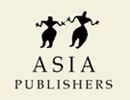|
Writer explores revenge, forgiveness
For many Koreans who still remember the Vietnam War, any literary work that deals with something other than the war or its scars may come as a strange experience.
Nguyen Ngoc Tu's "Canh Dong Bat Tan (The Boundless Green Field)" is a case in point. The novel, a bestseller in Vietnam, centers on peculiar themes that teeter between excruciating sadness and restless revenge.
Nguyen visited Korea to promote the Korean translation of her work. She said that the Vietnam War would continue to be a key theme in Vietnamese literature, but that her work implies that as things change, people should move to a different place, and this includes a writer like herself.
"Even though we cannot see the Vietnam War directly in a literary work, it's right there, because all the wounds remain there, unhealed," she said at a news conference in Insadong, Seoul, on Tuesday.
The Korean edition, translated by Ha Jae-hong and published by Asia Publishers, marks the major introduction of a leading Vietnamese writer who has built her fame through provocative themes and unique storytelling styles.
The novel involves a father and his two children - an 18-year-old girl and her younger brother. The narrator is the girl who goes through a series of hardships. First, the family is forced to live on the river after her mother left. In deep despair, her father becomes abusive and violent. The girl relies on her younger brother, but their poverty-stricken life turns upside down when a wandering prostitute joins the family.
Due to the unprecedented and candid descriptions of human desire, the novel triggered a huge debate among Vietnamese writers, critics and readers.
Nguyen said she did not care about the controversy much. "People read books in their own way and style, and it's totally up to the reader to interpret a work once the book comes out," she said.
Initially, she said she felt shocked at the tremendous reaction to her new novel. Over time, however, she realized that it's good to have any reaction from readers, whether it's positive or negative.
Nguyen was almost forced to perform a public confession, and authorities considered banning the book in April 2006, but the crisis was averted largely because mainstream readers thought highly of her novel's literary achievements.
"I was trying to talk about revenge and forgiveness through the novel," she said. "I didn't think about whether my work would be banned or not, because I believe I'm writing what I want to write, and there's no restriction about that in Vietnam."
Asked about whether the idea of forgiveness depicted in her novel is too passive, she said the focus should be placed on the predestined fate facing the characters, and how they come to terms with that fate. "I want to show that many Vietnamese women struggle with poverty and other difficult conditions, and they somehow adapt to such environments," she said.
Born to a poor family in Tan Duyet Village in Ca Mau Province, Nguyen had to drop out of school at age 15 to help support her family, selling vegetables and water ferns. Despite the harsh conditions, she taught herself writing by reading a wide range of books.
"I'm reading many books, many of which are related to culture, or something about my current writing project.
Chim Trang, a leading Vietnamese poet who accompanied the writer during her first trip to Korea, said her novel sparked diverse reaction from local readers. "Some people say it's quite interesting; others call it too provocative. I myself think the book deserves such diverse responses because it depicts the reality of Vietnam as it is, including poverty and prostitution, and even corrupt Vietnamese government officials," he said.
By Yang Sung-jin(insight@heraldm.com)
|

 03/25
03/25 

















